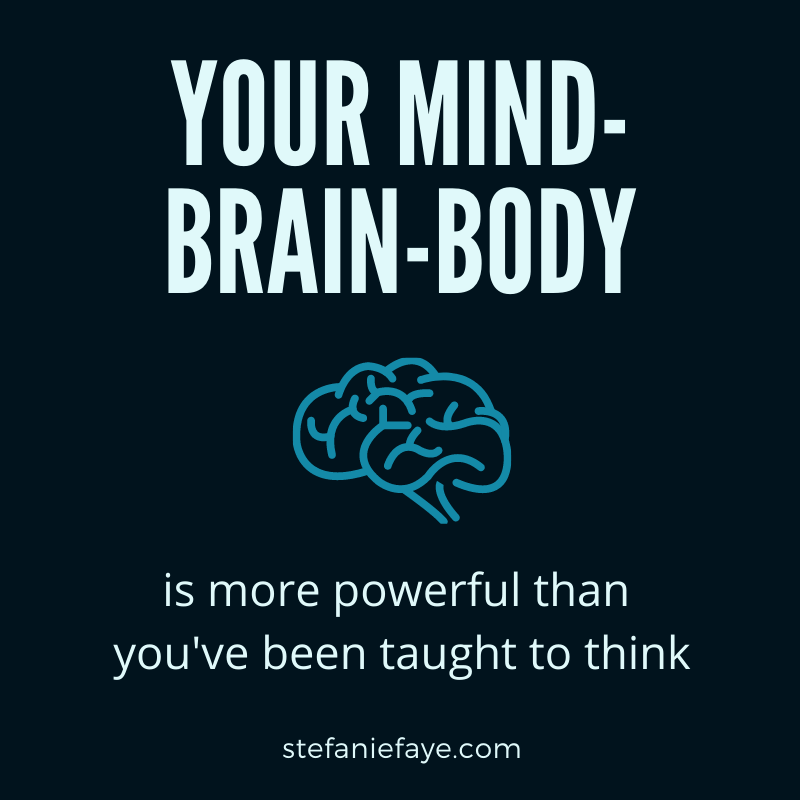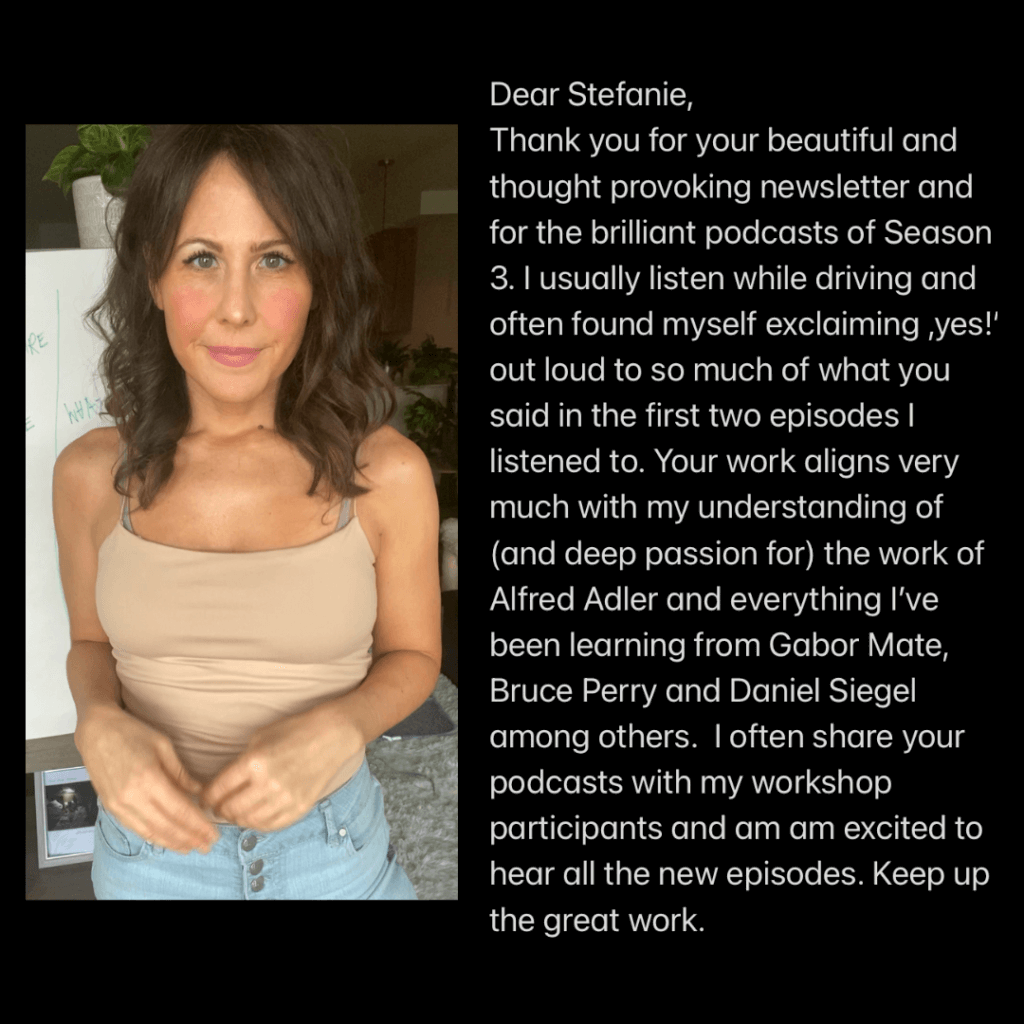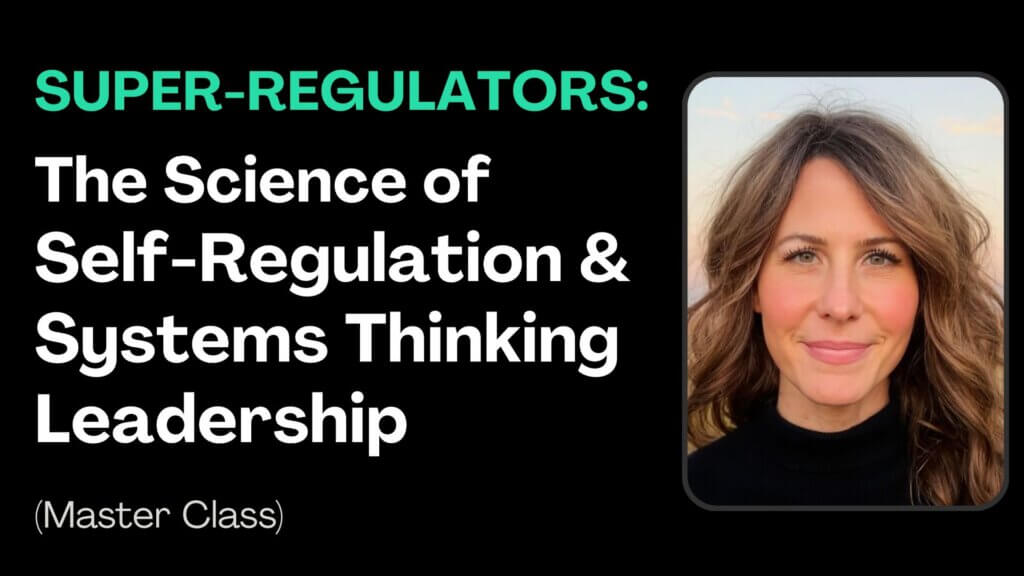“A change in purpose changes a system profoundly, even if every element and interconnection remains the same.”
― Donella H. Meadows

Your Mind-Brain-Body is more powerful than you’ve been ‘taught’ to think.
That was the key message of my first workshop over a decade ago. It hasn’t changed since then.
Not enough of us are taught and modeled how incredibly powerful we are not only at adapting at extremely fast rates to our environment, but our ability to share knowledge and new levels of understanding with each other.
Humanity is currently flooded with traps* that are (very intentionally) designed to get us to turn to something external to give us a hit of neurochemicals that satiate us momentarily, until we want more. The beautiful side of those neurochemicals is that they are actually designed to get us to take action, move, grow, challenge, connect with and master ourselves and our world. The feeling of desire of wanting to change is a powerful Nature-Designed tool of evolution.
*three in particular include: Shifting-the-Burden, Drift to Low Performance and Tragedy of the Commons - more on these in an upcoming article)
Desire and preferences are the impulse of evolution in embodied form.
We are not designed to be in the same state all the time - that would lead to stagnation, complacency and dissipation of the physical structure of our body. Fluctuations and feelings of discomfort and desire to change are part of the package of living as a physical entity on planet earth. The challenge is that many of us haven’t learned how to consciously witness, interpret and modify those internal neurochemical fluctuations in adaptive ways that help us achieve a sense of fulfillment, connection, life satisfaction and overall wellbeing.
Instead, the majority of people are stuck in a paradigm of using something external - and often maladaptive or addictive - to change our state. We are also being influenced by outside forces that drive us to keep using the same externally-oriented strategies in very repetitive ways to soothe or stimulate us. As soon as we don't have what we think we 'should' have instantly, we may lose our sense of wellbeing, focus and self-mastery.
Many people are getting lost in comparison with others, or paying too much attention to behaviors of someone else in order to inform their internal state. The world is filled with addictions to others’ reactions. Without them, we find ourselves lost, in a void of what to do, what to focus on, how to be.
If we stay stuck in that paradigm, our mental health suffers - as individuals and as a species.
We must learn how to control our own state - so that if the world seems against us, or not there for us, we still find that inner fire, that internal force to keep us moving, acting, striving, learning, growing, loving, appreciating, evolving.
But the energy-conserving, instant gratification algorithms of our mammalian heritage will not lead us to use our minds in this way by default or by accident. We have to intend to use our mind in this self-regulating, value-adding way and perceive ourselves as capable of doing this.
The world as it is - technology, the education system and most systems in power - will NOT teach us this. They depend on our addiction, and on our sense of inadequacy and reliance on them in order for them to continue as systems.
As someone who has been working in neuropsychology clinics and as a counselor for almost a decade, it’s that Internal Force that I see become weaker and depleted in people who are having challenges with their sense of wellbeing.
There can often be an exaggerated amount of focus and energy being devoted to reacting to others’ behaviors and moods rather than learning how to regulate one's own internal state using a variety of strategies and resources. Because we are born relying on our caregivers to help us self-regulate, this is a learning process all humans have to navigate.
As we mature and evolve, our brain architecture gives us the potential to strive towards a higher state of wellbeing and mastery when we no longer make someone else responsible for our mood. When we can get to that place of self-regulation, we can then bring that state into our connections with others.
When we perceive ourselves as the source of our own power and then harness that within our interactions, this helps us become less reactive to others’ behaviors.
The human brain's prefrontal cortex and executive functioning abilities allows us to do this. That shift into self-mastery helps us use relationships as AMPLIFIERS of our energy, brilliance and strength. Those are relationships worth striving to create.
The added complexity for us humans is that we also must co-exist with others. To function optimally, we need secure attachment and connection - people on our journey who can support us in striving towards our most evolved state.
“You think that because you understand “one” that you must therefore understand “two” because one and one make two. But you forget that you must also understand “and.”
-Sufi teaching story
When we connect with others who believe in our power and brilliance, this helps us remember that internal guiding force within ourselves. In my experience in counseling and coaching, I have seen two forces that help pull someone out of their darkness:
- their own sense of agency (translated into concrete physical action) and
- knowing that even just one person believes in them and their ability to evolve
We can - through our complex neurobiology - become better at remembering our own power, and how much value we have to add to others. When we become aware of the value we add to the world, this can spark a desire to be healthier, to take care of ourselves, to work, to exert effort, to exude love.
Thought allied fearlessly to purpose becomes a creative force:
one who knows this is ready to become something higher and stronger than a mere bundle of wavering thoughts and fluctuating sensations;
one who does this has become the conscious and intelligent wielder of their mental powers
- James Allen, As A Man Thinketh




